In the spirit of sharing as much strategic information and business intelligence as possible during the COVID-19 pandemic, we’ve got another news roundup to keep you up to date on the latest breaking payments, e-commerce, and retail news stories.

In India, the country’s Retail Association said 30% of retail stores will close down if the pandemic lasts until June.
A report released earlier in March by the United Nations projects the cost to the global economy will be more than $1 trillion resulting in the loss of nearly half of all jobs in Africa by those who can least afford it. It also said other developing countries that could be deeply affected include Bosnia, China, Djibouti, El Salvador, Eritrea, Iran, Kyrgyzstan, Madagascar, Nigeria, Paraguay, Panama, Serbia, Ukraine, and Vietnam.
Last week, the UN also said foreign investment is likely to drop between 30% and 40% globally this year, sparked by the uncertainty and economic impact ahead.
Stay-at-home orders spreading in US

As US residents watch the number of coronavirus cases jump in New York, some states and cities are responding from the health lesson learned while others are blatantly ignoring the eventual impact in their own backyards. Never were NIMBY attitudes more dangerous than now.
Washington, DC Mayor Muriel Bowser issued her city’s stay-at-home order requiring residents to stay home unless involved in essential service activities. Many other states and major cities earlier issued crackdowns on social contact and non-essential services and gatherings. Meanwhile, other states are ignoring or ineffective in their own response, putting residents at health risk as well as local businesses at risk from the economic tsunami building. Neighboring Virginia and Maryland, as well as New Jersey and numerous other states, have similar orders.

White House coronavirus response coordinator Dr. Deborah Birx said today she expects as many as 200,000 US deaths due to COVID-19 even “if we do things almost perfectly.” She added a worst-case scenario could result in 2 million cases of coronavirus in the US.
McKinsey provides a virtual roundtable with leading China retailers on how they handled their response to the pandemic as China starts to transition back to normal while the US enters its own coronavirus crisis stage. There’s much practical insight and advice shared by these China experts in their response including Jean-Michel Moutin, Asia COO at LVMH Perfumes and Cosmetics who summarized it eloquently as “Dare and care.”.
Financial industry impact of COVID-19
Even before the impact of coronavirus, the banking industry was struggling with high overhead costs resulting in the loss of 80,000 industry jobs last year with another 200,000 expected to be obsolete in the next decade according to Bloomberg. COVID-19 is accelerating the impact on the financial industry and adding to uncertainty in the future in new and substantial ways.

Coronavirus update: COVID-19 likely to cost economy $1 trillion during 2020, says UN trade agency
Apart from the tragic human consequences of the COVID-19 coronavirus epidemic, the economic uncertainty it has sparked will likely cost the global economy $1 trillion in 2020, the UN’s trade and development agency, UNCTAD, said on Monday. “We envisage a slowdown in the global economy to under two percent for this year, and that will probably cost in the order of $1 trillion, compared with what people were forecasting back in September,” said Richard Kozul-Wright, Director, Division on Globalization and Development Strategies at UNCTAD. Read more…

‘Rapid deterioration’ in global investment flows as Coronavirus spreads: UN trade body
Foreign direct investment flows are liable to drop by 30% to 40%during 2020, into next year, due to the ongoing COVID-19 pandemic, reflecting a far more severe economic blow than initially projected, the United Nations Conference on Trade and Development (UNCTAD) said on Thursday in its latest Investment Trends Monitor. Initial projections were based on data limited to February and expectations that East Asia would bear the brunt of the immediate economic impact – but with the virus spreading worldwide and with many countries in lockdown mode, a far greater shock on supply and demand looks inevitable, it said. Read more…

The road to true digital bank
Digital banks are well-positioned to thrive during the short term. Andrej Zujev, founder of Forbis Group, believes a digital bank should dedicate its resources to essential procedures ensuring quality and security while saving on obsolete banking roles. “The need for human resources should be very limited. Nearly everything can and should be done automatically.” On the other hand, Zujev says some vital functions should be overseen by people such as legal concerns, advanced anti-money laundering or geographically specific regulatory concerns. This provides better quality assurance and security of large assets. Marketing and communications can be considered as well, but the rest should be automated.”

British fintech Revolut launches banking app in US
British fintech firm Revolut Ltd on Tuesday launched its banking app and debit cards for customers in the United States as it seeks to expand beyond its base in the UK and Europe. The rapidly growing app started in 2015, has added 10 million users and raised $836 million in funding to date. The company also said it intends to offer commission-free stock trading and cryptocurrency trading in the near future, making it potential competition for US fintech firms such as Robinhood. Read more…
E-commerce impact of coronavirus
The positive and negative impacts of coronavirus on e-commerce have been noted and tracked in the following stories provide a range of valuable insights and business perspectives. E-commerce sellers providing products essential in the coronavirus response are doing record business. In non-essential businesses such as fashion, apparel, and accessories, citizens staying at home are browsing in high numbers if not buying nonessentials at present – still a positive signal for the industry.
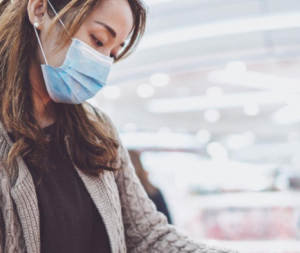
How China’s consumer companies managed through the COVID-19 crisis: A virtual roundtable
China’s economy is resuming activity after a near-total shutdown. Factories are restarting production, offices are reopening, and consumers are tentatively venturing outdoors and returning to stores. As China lifts its lockdown, Europe and North America are entering their own period of uncertainty, with governments closing borders, issuing self-containment advisories, and banning public gatherings. In this unprecedented period of transition, McKinsey’s Greater China Consumer and Retail Practice conducted a virtual roundtable discussion with China-based executives at leading consumer-facing companies about their experience managing operations under lockdown. Read more…

How China retail is emerging from the coronavirus crisis
Savills China Retail predicts a full recovery of the country’s retail sector post coronavirus will probably happen in the second half of the year. In a perspective on China retail’s recovery from the crisis, the real estate company describes the blossoming rejuvenation of shopping malls, restaurants, gyms and entertainment centers whose businesses were affected by lockdowns during and after the Chinese New Year period in late January. It says consumers are gingerly returning to stores as China’s coronavirus outbreak eases. Shopping malls in Shanghai are reporting footfalls at 30% of their pre-coronavirus levels. Read more…
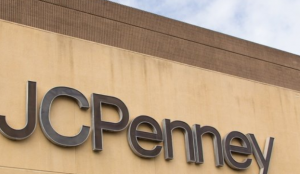
With zero sales from stores, a cash crunch is coming to department stores in 5 to 8 months
With their physical locations likely shut for several more weeks due to the COVID-19 pandemic, department stores have just five to eight months, depending on their situation, before liquidity becomes a risk factor, according to a note last week from Cowen & Co. The analysts said they measured liquidity as cash plus revolvers, relative to key costs like rent, labor, interest and committed dividends. With zero physical revenue, J.C. Penney (assuming $137 million of monthly e-commerce revenue) has about eight months of available cash, while Nordstrom (with $350 million from e-commerce per month), has about seven months — the two players faring best among those Cowen studied. Read more…
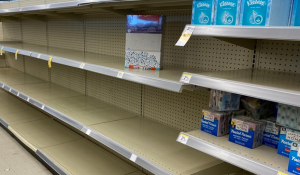
Survey: 59% of US companies would have 2 weeks of stock after halting production
Fifty-nine percent of U.S. companies say they would be unable to continue shipments for more than two weeks after a production stoppage, according to a survey of 1,300 international firms from RapidRatings released Monday. Among all the firms surveyed globally, that figure improved to 47%. The primary culprit is a cross-industry reliance on just-in-time (JIT) manufacturing, RapidRatings CEO James Gellert told Supply Chain Dive in an interview. Secondly, companies that don’t have the resources and/or redundancies in place to have global warehousing and production networks are at a significant disadvantage, he said. Read more…

REPORT: Effects of the COVID-19 outbreak on fashion, apparel and accessory e-commerce
Different e-commerce verticals are being affected by the COVID-19 outbreak in vastly different ways. A new report from AI commerce platform Nosto tracked the performance of fashion, apparel and accessories during the first three weeks of March in the US, UK, Germany, France, and Sweden. According to the analysis, visits, the number of orders, and total sales across all countries started dropping noticeably around March 7th. The worst performing day was March 20th, when sales revenue overall was down 32% and visits were down 24%. Average Order Value (AOV) declined by 6% while conversions were down by 9%. Read more…

E-tail to take $1bn hit in India lockdown
The 21-day lockdown will lead to a loss of at least $1 billion in gross sales as India’s largest online retail platforms like Amazon and Flipkart stop selling non-essentials till at least the middle of next month, based on current government directives. What’s of further concern is that the online retail players are expected to grow only by 5% this year, in the most optimistic scenario, compared to about 26% growth in the previous year to reach $23-24 billion in gross sales. Overall e-commerce sales, including movie tickets and other platforms, were $32 billion in 2019, according to market research firm Forrester. Read more…
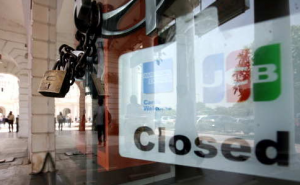
If lockdown continues till June, 30% of retail stores will close down: RAI
India’s retail industry is staring at losses of about half a billion dollars due to the closure of malls, apparel stores and the recent decision to pull shutters on factory production due to the havoc created by the coronavirus. There are over 15 lakh (1.5 million) modern retail stores in India generating a business of almost Rs 4.74 lakh crore ($712.5 billion) and employing over 60 lakh (60 million) people. Read more…

7 delivery apps keeping restaurants, grocers afloat during COVID-19
Dozens of states have banned dine-in service at restaurants, and nearly as many are requiring retailers to close up shop in a bid to slow down the coronavirus outbreak. As local businesses deal with the enormous financial implications that come with closing down to customers, many are trying out delivery services for the very first time. In an interview, Grubhub CEO Matt Maloney said his company has received “10 to 15 times” its usual restaurant leads during the outbreak, and that number is expected to grow even larger as more states enact bans on dine-in eating and in-person shopping. Read more…
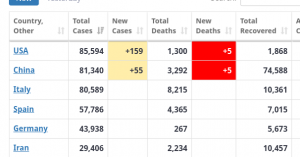
US survey update – Shopper worries increase, prompting more to cut retail spending
Almost half of US consumers (45.7%) are now extremely concerned about the outbreak, up 10 percentage points in just a week. Some 9.1% said they had already lost their jobs because of the coronavirus outbreak, up from 4.2% last week. Job losses peak among younger adults. We saw a big week-over-week uptick in the proportion saying they are buying less of certain categories, with close to half saying they are cutting back in some areas. Read more…

Why coronavirus antibody testing in one Colorado town could provide a way forward
While it might be impossible to figure out who is going to become sick with novel coronavirus, some public health experts believe the more critical question may be who has already been exposed. In Telluride, Colorado, last week, one biotech company put that idea to work. United Biomedical is now working with San Miguel County, which includes the famous Rocky Mountain ski destination, to test all 8,000 residents for COVID-19 antibodies — making it the first community in the country to do widespread antibody testing. Read more…

